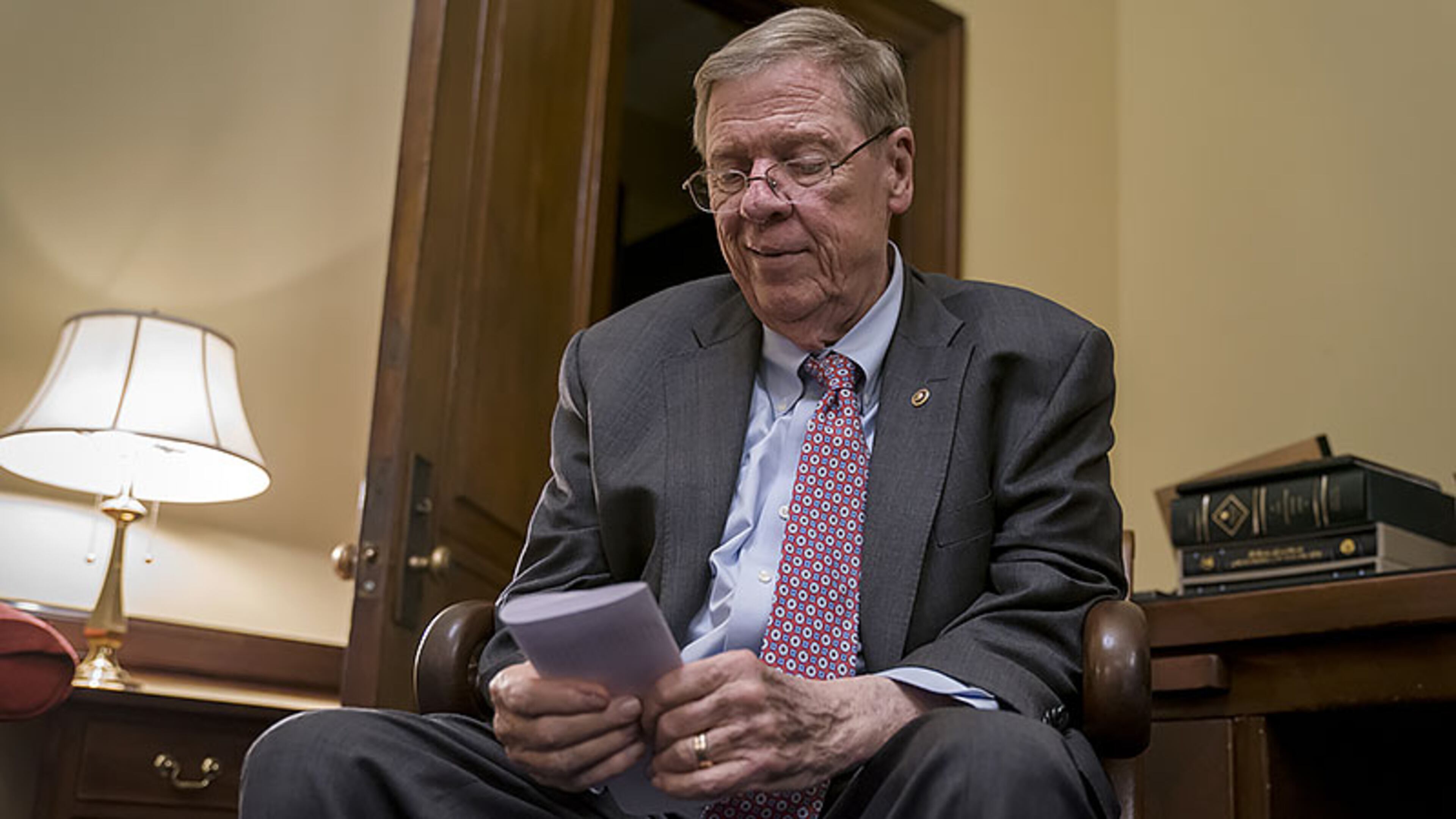The highlights of Kemp’s State of the State address

Gov. Brian Kemp laced his State of the State address on Thursday with policy initiatives and budget proposals that will shape his second year in office, proposing measures that would hike teacher pay and overhaul the foster care system.
Drawing on his background in construction, Kemp used the metaphor of building a house to outline his agenda before a crowd of hundreds of lawmakers, judges and other officials who crowded into the Georgia House for the annual speech.
A year after a legislative session dominated by debate over an anti-abortion measure, Kemp has promised to uphold other conservative campaign vows that helped fuel his narrow election victory. But he’s also mindful of Democratic gains in the suburbs that have made Georgia a 2020 battleground.
Here are some of the highlights:
TEACHER PAY
The governor's spending plan will include the remaining $2,000 of his promised $5,000 pay raise for public school teachers, which would fulfill one of his most significant campaign vows.
The salary increase was no sure thing in a tough economic climate. Kemp earlier ordered spending cuts that slash Georgia’s budget by 4% this fiscal year and 6% next year, making it more difficult to secure the $300 million or so needed for the pay bump.
He said the raise will help retain teachers, recruit new ones and improve student performance.
More: Battleground Georgia: The questions that will shape state politics in 2020
More: Georgia governor plans new approach to this legislative session
EDUCATION POLICY
The budget proposal would fully fund the k-12 school formula for the third year in a row. The complicated spending calculus, which determines how much state funding goes to each school district, was shorted for more than a decade before then-Gov. Nathan Deal boosted it in 2018.
Kemp also repeated his pledge to "dismantle" Common Core and reduce the number of tests to "give teachers the opportunity to actually do what they do best – teach."
SURPRISE MEDICAL BILLS
Decrying a "rigged" system, Kemp backed legislation that would bring more transparency in healthcare billing and combat "surprise" bills that have fast become a target of lawmakers. A Senate plan unveiled this week designed to curb patients' risk of facing unexpected charges could be the framework.
“Families are living on a prayer because the system is rigged against them,” said Kemp. “This year, we will implement long overdue reforms that put our families first.”

PARKINSON’S RESEARCH
A new research program in honor of former U.S. Sen. Johnny Isakson will launch at the University of Georgia to develop better treatments for the Parkinson’s disease that forced the three-term Republican to recently retire.
After thanking Isakson for being a “statesman and a true patriot,” Kemp said the professor recruited for the program will be directed to “develop better treatments for patients like Johnny – better medicine, and a better way of life.”
The governor showered praise upon Isakson, who was given a prime spot on the House floor, and said his legacy of public service helped inspire research that “will move one step closer to a cure” of the disease.
More: Georgia Republicans promise comity; critics predict 'muddy' fights
More: Georgia governor targets sex trafficking on first day of session
GANG VIOLENCE
The governor invoked the story of Deborah Rider, whose 10-year-old son Nicholas was killed a decade ago in a drive-by shooting, as he outlined legislation to “empower” law enforcement and prosecutors to better combat gang violence.
He offered scant details on the proposal, though he's recently said he would boost funding for an anti-gang task force he launched last year and a promised database to track gang members.
SEX TRAFFICKING
After honoring three women in the gallery who were forced into sex trafficking at a young age, Kemp called on lawmakers to close “loopholes that leave children vulnerable to exploitation.”
Though he gave few specifics, he said his proposal would help victims “tell their story in the courtroom without fear of retaliation” and then smooth their transition into the workforce.
Kemp recently announced a new training course designed to help identify victims of the crime, and said every state employee was encouraged to complete the regimen.
SOCIAL ISSUES
The governor sidestepped any talk of “religious liberty” measures and expanding gun rights, though he did bring up the legislation that helped define his first legislative session: The far-reaching abortion restrictions that narrowly passed the Legislature and are now at the center of a legal fight.
“During debate on the heartbeat bill, I would always start with a simple statement: Georgia is a state that values life,” he said. “Honestly, it’s hard to disagree with that.”
He added: “As a pro-life governor, I believe we have to protect the unborn and the born.” Dozens of Republicans gave him a standing ovation, while Democrats gave him a cool silence.
FOSTER CARE
The governor emphasized his vision for overhauling Georgia's foster care system with a plan that would triple a tax incentive for some adoptive parents and reduce the minimum age for unmarried people to adopt children.
The legislation would increase the tax credit for adoptions out of the state foster care system from $2,000 to $6,000 for the first five years. The incentive would then drop back down to $2,000 a year until the child turns 18.
The state estimates 1,145 foster children were eligible for adoption through the state Division of Family and Children Services in late 2019.
The measure would also reduce the age for an unmarried individual to adopt in Georgia from 25 to 21. Current state law only allows Georgians between the ages of 21 and 25 to adopt if they’re a relative of the child.
And it proposes a new commission that will be tasked with considering a “systematic reform” of the administration of the foster care system.



